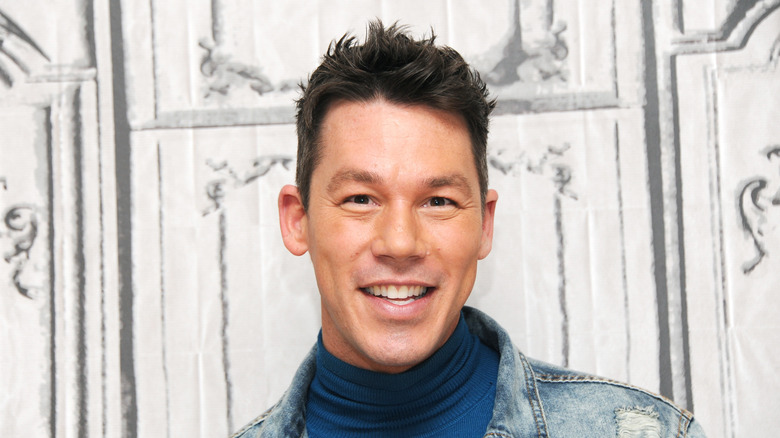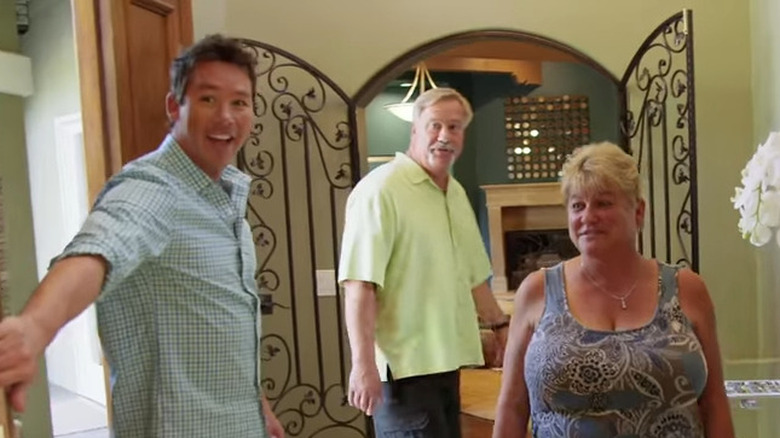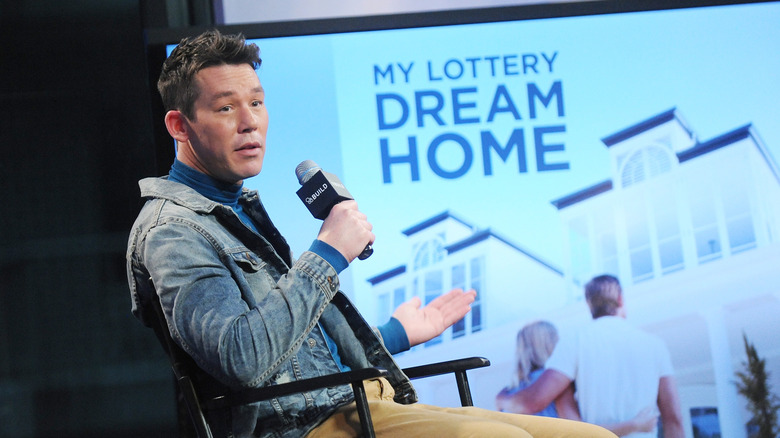The Rocky Beginning To HGTV's My Lottery Dream Home Explained
"My Lottery Dream Home" is a dream come true for HGTV, but it started out as a bit of a nightmare. The twisted real estate reality series, which premiered in 2015 and is hosted by David Bromstad, is a big hit for the network eight years in. In 2018, the show's Season 5 premiere logged its biggest Nielsen numbers ever with 3.3 million total viewers, The Wrap reported at the time. More recently, more than 21 million viewers tuned in to watch lottery winners search for their dream homes in 2022 alone, per The Futon Critic.
It's clear the network hit the jackpot with "My Lottery Dream Home," but the premise was not exactly a winning idea at first. As Beyond Productions vice president Michael Krupat once shared, lucky lottery winners are a breed all their own. "Lottery winners don't really need the exposure and they don't need the money to participate," Krupat told Mediaweek in 2017. That's one reason the casting headaches were real from the beginning.
The first two episodes of My Lottery Dream Home took forever to cast
When TV executive Michael Krupat was approached with the idea for "My Lottery Dream Home" — a show about lottery winners buying dream homes with their seven-figure scratch-off winnings — he hit a roadblock in the casting department. "It just started out so slow," host David Bromstad told The Wrap. "It took a year for each of the first two episodes just to cast. So, it was a lot of being on hold ... 'Oooh, we have one! Ooops, sorry, we don't.'"
Krupat told Mediaweek, "We reached out to close to one thousand lottery winners and we got 10 to appear on our first season." He also noted that he had success with sending handwritten letters to get potential guests' attention. Once other lottery winners saw the show, it became easier to cast people. In fact, some winners now approach the show themselves — after getting advice from their money managers, that is.
"A lot of winners get financial advisers and think it through before they call me," Bromstad told The New York Post. "They know I'm going to give them great deals and show them exactly what they want to see." Bromstad also told the outlet he serves as a pseudo "counselor" for some of the house buyers, given his experience with house-flipping and interior design. All in all, the show is a "win" for all involved.
My Lottery Dream Home is more 'real' than House Hunters
In addition to its lotto premise, "My Lottery Dream Home" sets itself apart from other house-hunting shows in another way. It's completely "real" from start to finish, unlike the pioneering real estate show "House Hunters." Six years before "My Lottery Dream Home" was dreamed up, "House Hunters" ruled the reality real estate scene. The series follows regular people looking for homes and picking from their top three contenders. The final pick, however, is totally scripted. That's right — the purchasers aren't actually hunting for houses, because in many cases their final deal is done before they even shoot the show.
Secrets were spilled in a 2019 exposé by Slate. One House Hunter who appeared on two versions of the show admitted that in neither episode was she actually house hunting. "One time we'd already closed on the house we 'chose' in the episode; the other time we'd already lived in our house for a year," admitted Elizabeth Newcamp. She also copped to touring Airbnbs instead of actual listed properties, and claimed a friend was brought in to "act" as a relocation expert. A rep for "House Hunters" confirmed that buyers profiled on the show are already knee-deep in their search due to time constraints for television production. "To maximize production time, we seek out families who are pretty far along in the process," the rep told Entertainment Weekly in 2012. "Often everything moves much more quickly than we can anticipate, so we go back and revisit some of the homes that the family has already seen and we capture their authentic reactions."



